Filter by
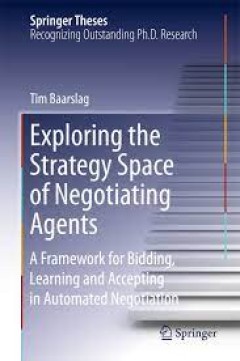
Exploring the Strategy Space of Negotiating Agents A Framework for Bidding, …
This book reports on an outstanding thesis that has significantly advanced the state-of-the-art in the area of automated negotiation. It gives new practical and theoretical insights into the design and evaluation of automated negotiators. It describes an innovative negotiating agent framework that enables systematic exploration of the space of possible negotiation strategies by recombining diff…
- Edition
- -
- ISBN/ISSN
- 978-3-319-28243-5
- Collation
- 37 b/w illustrations, 21 illustrations in colour
- Series Title
- -
- Call Number
- -
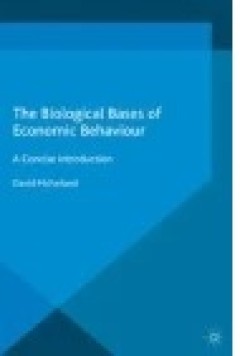
The Biological Bases of Economic Behaviour
Human genetics has changed little over the past 20,000 years, but human economic behaviour has changed a lot. These changes are probably due to human cultural evolution. But studies of human hunter-gatherers, and of a variety of other animal species, show that their micro-economic behaviour is much the same. Whereas the standard economic analysis focuses on money, the biological approach brings…
- Edition
- -
- ISBN/ISSN
- 978-1-137-56806-9
- Collation
- VIII, 122
- Series Title
- -
- Call Number
- -
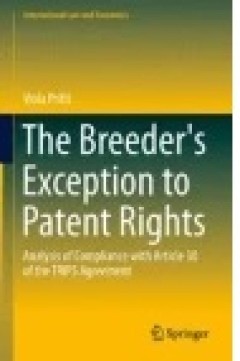
The Breeder's Exception to Patent Rights
This book is the first to analyze the compliance of different types of a breeder's exception to patent rights with article 30 of the Agreement on Trade-Related Aspects of Intellectual Property Rights. This type of exception allows using protected biological matter for breeding new varieties of plants. The breeder’s exception is widely accepted under plant variety legislation, but it is not co…
- Edition
- -
- ISBN/ISSN
- 978-3-319-15771-9
- Collation
- XXIV, 176
- Series Title
- International Law and Economics
- Call Number
- -

Advances in Artificial Economics
The book presents a peer-reviewed collection of papers presented during the 10th issue of the Artificial Economics conference, addressing a variety of issues related to macroeconomics, industrial organization, networks, management and finance, as well as purely methodological issues. The field of artificial economics covers a broad range of methodologies relying on computer simulations in or…
- Edition
- Ed. 1
- ISBN/ISSN
- 978-3-319-09578-3
- Collation
- X, 243
- Series Title
- Lecture Notes in Economics and Mathematical Systems
- Call Number
- 004.6 ADV a
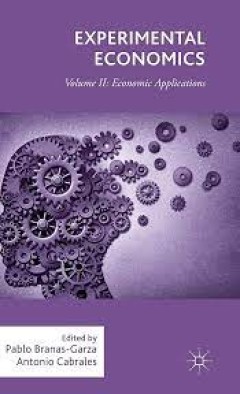
Experimental Economics Volume II: Economic Applications
How do applications affect behavior? Experimental Economics Volume II seeks to answer these questions by examining the auction mechanism, imperfect competition and incentives to understand financial crises, political preferences and elections, and more.
- Edition
- -
- ISBN/ISSN
- 978-1-137-53816-1
- Collation
- XVIII, 220
- Series Title
- -
- Call Number
- -

Law and Economics in Europe and the U.S.; The Legacy of Juergen Backhaus
This volume traces the evolution of the field of law and economics from its European roots to its neoclassical “Chicagoan” period to its current identity as a more fluid, transatlantic discipline. Paying special attention to the work of German economist Juergen Backhaus, who was instrumental in the reintroduction of the European perspective to the field, this book analyzes this gradual sh…
- Edition
- -
- ISBN/ISSN
- 978-3-319-47471-7
- Collation
- -
- Series Title
- -
- Call Number
- -

Evolutionary Optimization and Game Strategies for Advanced Multi-Disciplinary…
Many complex aeronautical design problems can be formulated with efficient multi-objective evolutionary optimization methods and game strategies. This book describes the role of advanced innovative evolution tools in the solution, or the set of solutions of single or multi disciplinary optimization. These tools use the concept of multi-population, asynchronous parallelization and hierarchica…
- Edition
- -
- ISBN/ISSN
- 978-94-017-9520-3
- Collation
- 198 b/w illustrations, 48 illustrations in colour
- Series Title
- -
- Call Number
- -
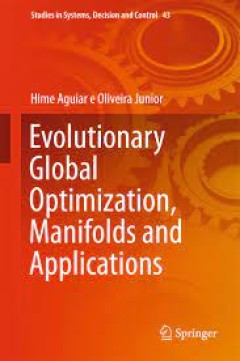
Evolutionary Global Optimization, Manifolds and Applications
This book presents powerful techniques for solving global optimization problems on manifolds by means of evolutionary algorithms, and shows in practice how these techniques can be applied to solve real-world problems. It describes recent findings and well-known key facts in general and differential topology, revisiting them all in the context of application to current optimization problems. Spe…
- Edition
- -
- ISBN/ISSN
- 978-3-319-26467-7
- Collation
- 17 b/w illustrations, 26 illustrations in colour
- Series Title
- -
- Call Number
- -
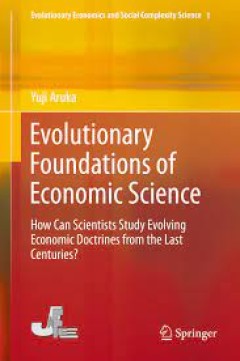
Evolutionary Foundations of Economic Science How Can Scientists Study Evolvi…
This book aims to discern and distinguish the essential features of basic economic theories and compare them with new theories that have arisen in recent years. The book focuses on seminal economic ideas and theories developed mainly in the 1930s to 1950s because their emergence eventually led to new branches of economics. The book describes an alternative analytical framework spreading through…
- Edition
- -
- ISBN/ISSN
- 978-4-431-54844-7
- Collation
- 78 b/w illustrations, 24 illustrations in colour
- Series Title
- -
- Call Number
- -
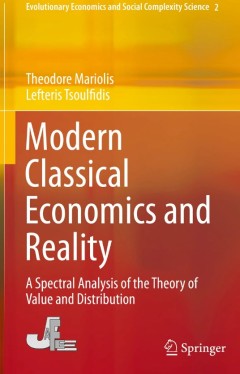
Modern Classical Economics and Reality
This book presents an in-depth, novel, and mathematically rigorous treatment of the modern classical theory of value based on the spectral analysis of the price–profit–wage rate system. The classical theory is also subjected to empirical testing to show its logical consistency and explanatory content with respect to observed phenomena and key economic policy issues related to various multip…
- Edition
- 1
- ISBN/ISSN
- 978-4-431-55003-7
- Collation
- XI, 242
- Series Title
- Evolutionary Economics and Social Complexity Science
- Call Number
- -
 Computer Science, Information & General Works
Computer Science, Information & General Works  Philosophy & Psychology
Philosophy & Psychology  Religion
Religion  Social Sciences
Social Sciences  Language
Language  Pure Science
Pure Science  Applied Sciences
Applied Sciences  Art & Recreation
Art & Recreation  Literature
Literature  History & Geography
History & Geography